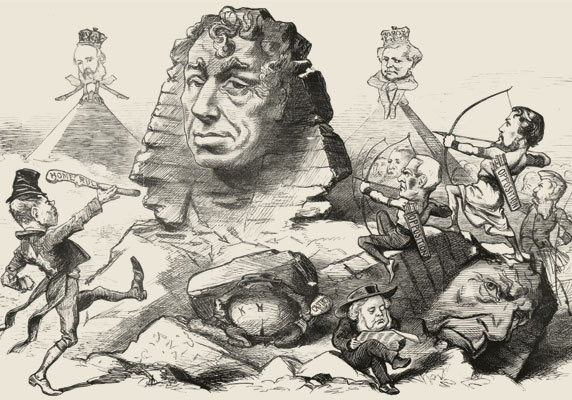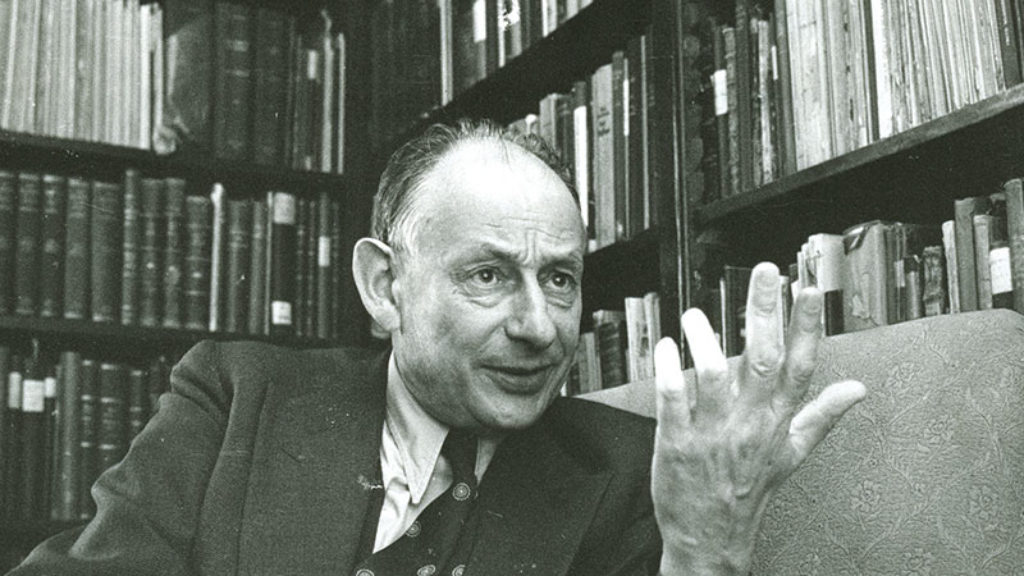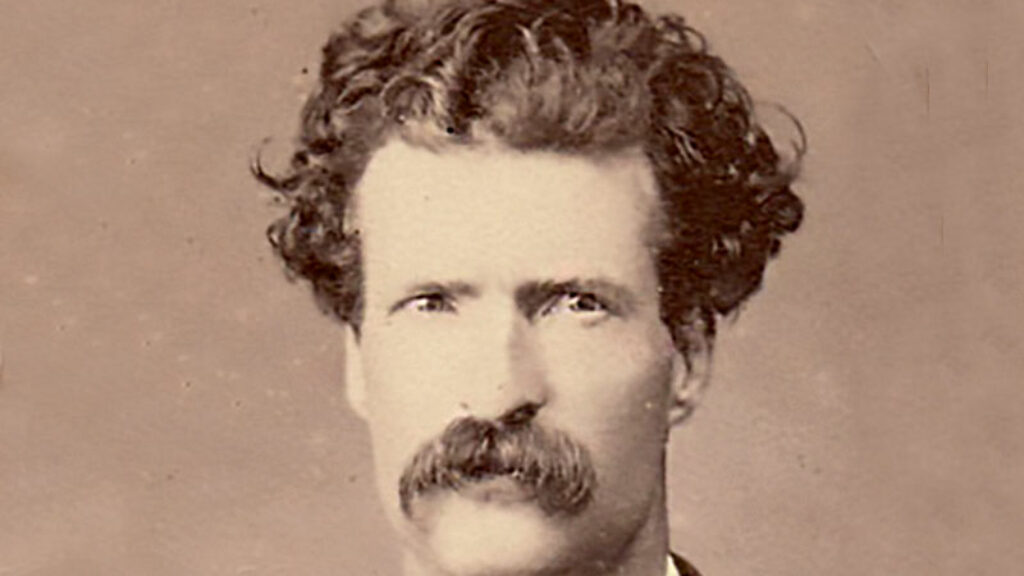One Nation, Two Disraelis
Benjamin Disraeli’s legendary rival, William Gladstone, may have been the transformative genius of Victorian liberalism, but in death the legacy of the British prime minister who Bismarck famously called “the old Jew” has proved more lasting. Within six years of Disraeli’s passing in 1881, over half a million British men and women had enrolled in the Primrose League, an imperialist vehicle for popular conservatism that took its name from his favorite flower and whose members wore a primrose on the anniversary of his death. By 1910 its membership was approaching two million, nearly a quarter of the national electorate.

The Primrose League eventually faded in importance (though it was intermittently active up through the 1990s), but Disraeli’s memory has remained evergreen. In 1924, the future Prime Minister Stanley Baldwin invoked Disraeli’s 1845 novel Sybil, or The Two Nations when he argued for a “One Nation Conservatism,” which emphasized the bonds of responsibility between the social classes. As Baldwin later commented: “[A]ll those who look back, as every Tory must look back, to Disraeli for inspiration will never be afraid to go forward.” This is as true today as it was in the 1930s. The current prime minister, David Cameron, has repeatedly invoked Disraeli when elaborating his Conservative vision of social responsibility. So resonant is Disraeli’s place in national memory, that even Labour Party leader Ed Miliband felt no compunction about making a case for “One Nation Labour” in 2012.
This Disraeli—symbol of a nation, architect of modern Conservatism—has little place in the distinguished (and recently deceased) historian David Cesarani’s arresting new study of the great Victorian Tory. For Cesarani is interested not in Disraeli’s politics but in his Jewishness. He is, of course, by no means the first to examine the Jewish roots of a man whose entire political career was predicated on his childhood conversion to Christianity. In locating Disraeli within modern Jewish history, Cesarani engages with a tradition that he traces back to Hannah Arendt and Isaiah Berlin, who placed Disraeli’s Jewishness at the heart of his private life, his novels, his political thought, and his career as a politician. Nonetheless, Cesarani questions the idea that Jewishness is the biographical key to understanding who or what Disraeli was.
Cesarani undercuts assumptions about Disraeli’s Jewishness from the first. Historians have traditionally attributed his conversion to his father’s quarrel with the London Sephardic community over an unpaid fine. Cesarani emphasizes instead the key role played by Disraeli’s godfather Sharon Turner in persuading the elder D’Israeli, a cosmopolitan man of letters, to go ahead. Turner was both a zealous Christian and an early apostle of racial thinking. The D’Israeli circle also included well-known opponents of Whig politics such as the Romantic poet Robert Southey and the publisher John Murray. Cesarani sees both father and son as deeply embedded in a reactionary, Tory milieu and fundamentally divorced from traditional
Judaism. On his reading, they were converts who saw Christianity not as a passport to social success but rather as the ultimate fulfilment of Jewish revelation.
Everything about Disraeli’s career was extraordinary. After flirting with the law, he threw himself into the speculative frenzy of the London stock market, investing in and promoting South American mining stocks; he lost a fortune in the 1825 crash. The young Disraeli and his two partners were left with debts of £7,000, and he escaped a debtor’s prison only by virtue of being underage. Desperate to restore his finances, Disraeli set out to become a best-selling novelist, an expedient he embraced repeatedly in a life of financial brinksmanship. His first novel, Vivian Grey (1826), is the tale of an ambitious young man who sees politics as a vehicle for social advancement because in England “to enter high society, a man must either have blood, a million, or a genius.” Historians have—quite understandably—tended to read it as disguised autobiography. The novel was a commercial success but a critical disaster that did little in the end for Disraeli’s prospects.
In 1830, he then took the unusual step of setting out for Jerusalem. Stopping for a month in Constantinople, he ‘“went native,’ dressing like a Turk, smoking Turkish pipes, and indulging the sort of pleasures that were forbidden in London or usually inaccessible to a young man of his station.” While Disraeli noted the exotic diversity of the population, Cesarani comments wryly that “Jews were merely one element of the backdrop to his personal odyssey”—and an element he largely chose to ignore.
While other historians have ransacked Disraeli’s early novels for insights into their author’s Jewish identity, Cesarani cites evidence that he was sublimely indifferent to it. This was a young man who passed through Frankfurt without noticing its Judengasse; spent five months in Egypt without reflecting on the Exodus; and, perhaps most remarkably, made a famous tour of Jerusalem without visiting either the Jewish quarter or the Western Wall. He was not only indifferent, in fact, but also ignorant: The Jews in Vivian Grey, Contarini Fleming (1832), and even The Wondrous Tale of Alroy (1833), a historical fiction about a messiah in medieval Baghdad, are all stock characters, whose author has only the haziest grasp of Jewish ritual.
On his return from the East, Disraeli plunged into politics and dallied in London society, where he cut an arresting figure: “He is satirical, contemptuous, pathetic, humorous, everything in a moment,” an American journalist wrote of him, “the most intellectual face in England—pale, regular, and overshadowed with the most luxuriant mass of raven black hair.” Talented and consumed by ambition, Disraeli branded himself confusingly as a “Tory-radical” when he tried (and failed) to win a seat in parliament. He did rather better as a Conservative polemicist. At the behest of the former Tory lord chancellor, Disraeli wrote a series of influential articles challenging the Whig-Radical claim to represent the people. The Tories, who stood for the interests of the Crown, Church, peerage, university, and judiciary, he argued, had a stronger claim to the role. His Vindication of the English Constitution in a Letter to a Noble and Learned Lord (1835) was a profoundly reactionary text that defended prescription, precedence, and antiquity against the tests of utility, popularity, and modernity. Disraeli’s Tory contemporaries found it an essential resource. And so this raffish young man more at home in the demi-monde than the Tory shires won the backing of the Carlton Club and made it into Parliament just as Queen Victoria ascended the throne. Hecklers at public meetings had taunted him with cries of “old clothes” and “Shylock,” but, Cesarani writes, “His Jewish origins had not been a significant barrier and were, therefore, barely worth reflecting on.”
The 1830s and 1840s were not a good time for Conservatives. The party split decisively in 1846 when Tory Prime Minister Sir Robert Peel chose to repeal the Corn Laws with the support of his opponents. Disraeli had tried and failed to obtain office under Peel. He emerged fleetingly as the leader of a group called Young England, a label that hinted misleadingly at the flowering of romantic nationalism inspired by the radical Italian democrat Giuseppe Mazzini. But there was nothing radical or democratic about Disraeli’s ideas. In his Young England trilogy, he sympathized with the plight of the poor but looked to the Crown, Church, and aristocracy to heal the social dislocations of the modern age. These novels have had an extraordinary staying power. Overwritten and melodramatic, Coningsby, or The New Generation (1844), Sybil, and Tancred, or The New Crusade (1847) provided British Conservatism with a seemingly inexhaustible resource. As the future Tory Prime Minister Harold Macmillan commented in 1943: “Disraeli left a great mark on England . . . the young men in the Tory Party now read his novels . . . with the same enthusiasm as we did thirty years ago.”

These novels contain what Cesarani describes as “an unprecedented assertion of Jewish superiority” embodied in the figure of Sidonia, a cosmopolitan and sophisticated financier of noble Sephardic stock. Sidonia, who features in all three novels, is remarkable both for his contempt for representative democracy and for his explicit embrace of racial theory. For instance, he explains to the hero of Coningsby that the world is divided into five races, and Jews stand, with the Arabs, at the apex of the Caucasian race, followed by Saxons and Greeks. But the Jews are superior because they have remained pure, and, despite their outcast status, have exercised “a vast influence on the affairs of Europe.” Similar ideas are developed in Tancred. This time, however, Disraeli combines racialized language with an emphasis on the Jewish origins of Christianity—a theme he later developed in his famous Commons intervention in defense of Jewish political rights.
Cesarani is at pains to emphasize both the pernicious influence of Disraeli’s rhetoric of Jewish superiority and its curiously incidental quality. The creator of Sidonia had no interest in Jewish causes: The Damascus blood libel passed him by in 1840, as did the kidnapping of Edgardo Mortara in 1858. Disraeli may have spoken out in the great debate of 1847 prompted by Lionel de Rothschild’s election as member of Parliament for the city of London, but he did so on religious grounds and “as a Christian.” His willingness to do even this reflected a growing intimacy with the Rothschilds, who eventually became something of a surrogate family. Indeed, Sidonia was partly written as a compliment to Lionel. According to Cesarani, Disraeli played up his own Jewishness to get closer to the Rothschilds, stressing racial affinity in the absence of religious common ground. It was a stance he adopted rather carelessly, but later found impossible to disavow. Even as he advised Rothschild on parliamentary tactics, he commented on an early version of the Jews Relief Act of 1858, designed to eliminate the barriers to Jews serving in Parliament, saying that he wished it were “at the bottom of the Red Sea.”
Since Disraeli was the only Tory of any real political talent, his party had no alternative but to accept him as its leader in the House of Commons. In this role, he served three times as chancellor of the exchequer under Lord Derby: in 1852, 1858–1859, and 1866–1868. These brief spells were not insignificant. In 1858–1859, for instance, the Derby government made it possible for Lionel de Rothschild finally to enter Parliament, ended the rule of the East India Company through the Government of India Act, and introduced an unsuccessful Reform Bill. Only the first of these developments is of any interest to Cesarani, who emphasizes Disraeli’s very lukewarm commitment to Jewish emancipation. Instead, Cesarani focuses on the interplay between Disraeli’s political success and his Jewishness: “[T]he higher he rose, the greater the power he accumulated, the more intense the antipathy he aroused.” Detecting a coarsening of discourse both about Jews and about Disraeli in the 1850s, Cesarani argues that the two phenomena were connected. If people began to talk about Disraeli and Jews in racial terms, associating them with revolution and power, then this was partly a reflection of Disraeli’s own rhetoric. Cesarani even suggests that Disraeli’s rhetoric about Jews acquired such importance precisely because his actions as a Jew were so sparse.
Cesarani devotes the third part of the book to the evening of Disraeli’s life, when he served both as a legendary leader of the opposition and as a great, reforming prime minister. Sidestepping the achievements that have led Conservatives to claim him as the father of Tory Democracy and the architect of socially responsible “One Nation Conservatism,” Cesarani focuses instead on Disraeli’s friendship with the Rothschilds, his purchase of the Suez Canal in 1875, and his controversial defense of the Ottoman Empire, which prompted claims that he was pursuing a Jewish foreign policy. Cesarani writes that “the construction of Disraeli as a ‘Jew’ carrying out a ‘Hebrew policy’ was the enduring legacy of his last period in office, at least insofar as his image and his place in history are concerned.”
British historians and Conservative politicians alike will object to such a conclusion. Of course,
Cesarani is right to emphasize the persistence and sheer volume of prejudice Disraeli encountered. Few of his contemporaries were immune from this sentiment: not Edward Stanley, his political disciple, nor Gladstone, who actively stoked it. Yet Cesarani oversimplifies when he claims that Disraeli “played a formative part in the construction of anti-Semitic discourse” because his racial rhetoric succeeded “in his lifetime, and for decades afterwards, in convincing people that he was a Jewish genius at the centre of a web of Jewish influence.” This overstates Disraeli’s importance as a European thinker, and understates his influence as a model of Jewish respectability.
Anti-Semites like Bruno Bauer, Wilhelm Marr, and Édouard Drumont may have taken their cue in part from Disraeli’s ideas, but for the German historian Heinrich von Treitschke he was proof that Jews could assimilate: He was “an Englishman through and through.” In emphasizing Disraeli’s pivotal role in the emergence of modern Jew-hatred in Britain, Cesarani fails to account for his place in national memory. In doing so, he overestimates the significance of British anti-Semites like Hilaire Belloc and Lord Sydenham at the expense of infinitely more significant figures like Stanley Baldwin and Harold Macmillan. Of the Primrose League, there is no mention.
Interpreting Disraeli from the vantage point of a Jewish historian, Cesarani sometimes falls into the same trap as earlier biographers whose accounts he has otherwise revised with such panache. Cesarani may question the extent to which Disraeli’s early novels can be read as a guide to his identity, but he still draws extensively upon them, even if he is more skeptical about their Jewish dimension. He maintains that Disraeli cared relatively little about his Jewishness, and yet by interrogating this issue at the expense of other concerns he ignores large swathes of his subject’s career.
David Cesarani had become the public face of Jewish history in Britain when he died recently at the age of 58. He was known above all as the biographer of Eichmann and an expert on the Holocaust, who played a leading role in establishing its place in public memory. But Cesarani made his name as one of a generation of young historians who challenged the complacency of Anglo-Jewry by underscoring the persistence of anti-Semitism in Britain, and the challenges of migration and integration. In Disraeli, which, tragically, turns out to have been his last book, Cesarani came full circle. Yet Disraeli transcended the narrow confines of Anglo-Jewish history. His Jewishness and his political influence deserve to be thought about together in ways that take into account the more positive dimensions of his legacy.
As Conservative politician Douglas Hurd noted in his 2013 biography of Disraeli, no British prime minister except perhaps Winston Churchill has become the focus of such posthumous mythology. Cesarani’s clever, beautifully written book will change the way we understand Disraeli’s Jewishness, but it does less to explain the vitality and longevity of his legacy.
Suggested Reading

The Secret Metaphysician
While a new crop of biographies about Gershom Scholem all, in one way or another, seek to account for the great man's fascination, they are themselves evidence of Scholem’s ongoing allure.
Shabbtai at Seventy
Stuart Schoffman traded Malibu for Jerusalem, "smack in the middle of the First Intifada."
Re-Intoxicated by God
The way out is clearly marked: Intense Talmud study leads to intense study of science and philosophy. Spinoza was (in fact, sometimes still is) a crucial step along the path out.

Not So Innocent Abroad
Mark Twain's book about his travels to the Holy Land and back is his bestselling book over the course of his lifetime and remains one of the bestselling travel books of all time.
Comments
You must log in to comment Log In